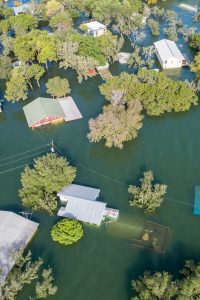The Role Of Medical Interpreting in Rural Areas After a Crisis
When disaster strikes, be it a natural disaster, public health emergency, or community-level crisis, rural communities often face the harshest challenges in recovery. Medical services in these areas are already stretched thin, and after a crisis, the strain is multiplied. The added layer of language barriers in diverse rural populations can make access to healthcare even more difficult. This is where qualified interpreters become critical in acting not just as language facilitators, but as life-saving connectors in times of urgent need.
The Reality of Crisis in Rural Areas
Rural regions frequently struggle with fewer hospitals, limited emergency resources, and long distances to care facilities. When a crisis occurs, whether it’s a wildfire, flood, pandemic outbreak, or economic collapse, these limitations intensify. Populations in these areas may include migrant workers, indigenous communities, and immigrants, many of whom have limited English proficiency (LEP).
In such vulnerable settings, the inability to communicate clearly with medical professionals can delay treatment, exacerbate trauma, and even result in loss of life. According to the National Rural Health Association, rural residents are more likely to suffer from chronic conditions and are less likely to have access to primary care providers. Add a language barrier, and outcomes can worsen dramatically.
The Critical Role of Interpreting After a Crisis
In post-crisis medical scenarios, every second matters. Miscommunication between providers and patients can lead to: 
-
- Misdiagnoses
- Incorrect medication dosages
- Failure to follow treatment instructions
- Missed opportunities for preventative care
- Increased anxiety and fear in patients
Qualified medical interpreters help eliminate these risks by providing clear, accurate, and culturally competent interpretation between patients and providers. They ensure that medical teams understand patients’ symptoms, concerns, and histories while helping patients grasp their diagnosis, treatment options, and aftercare instructions.
This is especially vital in crisis response, where healthcare teams may be working with rotating staff, volunteers, or out-of-state medical responders unfamiliar with the community’s language needs. Interpreters provide a bridge between professionals and patients in high-stress, time-sensitive environments.
A Real-World Example: Post-Pandemic Recovery in Rural Areas
The COVID-19 pandemic revealed the gaps in medical accessibility for LEP populations in rural America. In agricultural areas where many workers speak Spanish, Haitian Creole, or indigenous languages like Mixtec, access to testing, vaccines, and treatment was hindered by a lack of interpreters and translated materials. Some communities relied on makeshift interpreters, such as children or untrained staff, resulting in dangerous miscommunications. 
Language service providers who offer on-demand remote interpretation and credentialed on-site interpreters were essential partners in helping healthcare providers communicate quickly and accurately. Whether assisting in vaccine clinics, mobile testing centers, or telehealth consultations, professional interpreters ensured that no voice went unheard, even in the most isolated communities.
The Importance of Cultural Competency
Beyond language fluency, professional interpreters bring cultural understanding to the table. In rural areas, cultural norms may differ significantly from those of urban populations. An interpreter who understands both the language and cultural context of a patient can help providers approach care with sensitivity and build trust with communities that may already feel marginalized or wary of outsiders.
For example, in communities with strong oral traditions or where medical mistrust is prevalent, interpreters can help explain the importance of treatments in culturally respectful ways. They can also relay cultural practices or beliefs that may influence medical decisions, creating a two-way understanding between provider and patient.
Supporting Rural Crisis Response
Liberty Language Services has worked with government agencies, healthcare organizations, and emergency response teams to bring qualified interpreting to the communities that need it most, when they need it most.
Here’s how Liberty can help in rural crisis scenarios:
-
- On-demand Virtual Interpreting (OPI/VRI): Available 24/7/365, this service connects providers with interpreters in seconds, even in remote locations with limited physical access.
- Credentialed On-Site Interpreters: Where in-person communication is necessary, Liberty ensures interpreters are medically trained, background-checked, and fully credentialed.
- Specialized Language Coverage: With coverage in over 300 languages, including ASL and indigenous dialects, Liberty ensures no patient is left behind due to language.
- Crisis-Prepared Teams: Liberty’s interpreters are trained to work in high-stakes environments, maintaining professionalism and calm under pressure.
- Customizable Solutions: Whether through mobile clinics, pop-up care centers, or ongoing rural outreach programs, Liberty partners with organizations to meet unique regional needs.
Building Resilient Communities Through Language Access
As rural areas continue to rebuild and prepare for future crises, incorporating language access into emergency preparedness plans is not a luxury; it’s a necessity. Healthcare providers, public health officials, and government agencies must recognize interpreting as a foundational element of equitable healthcare.
Ensuring access to interpreters in rural areas means more than just translating words; it means restoring dignity, saving lives, and empowering entire communities to recover and thrive after a crisis.


